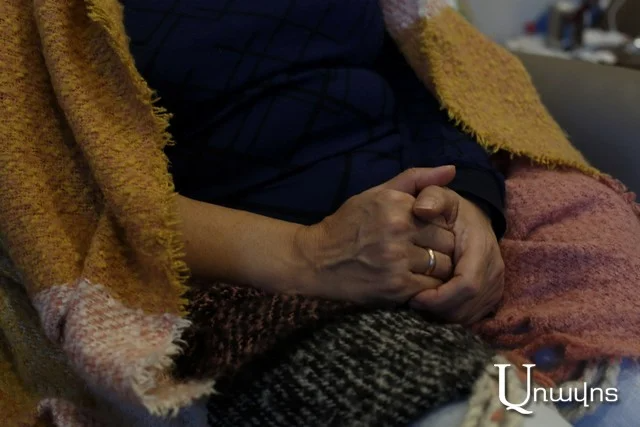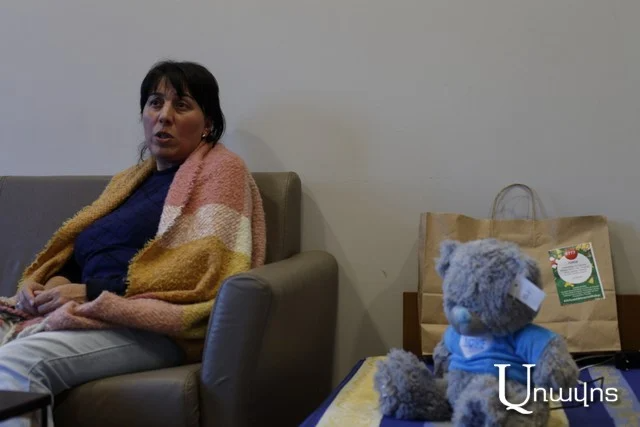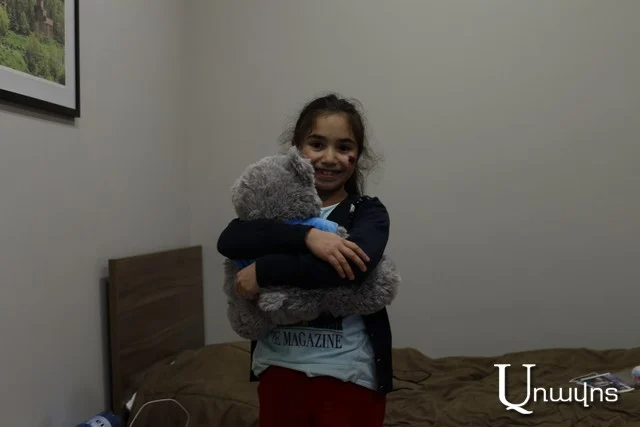Taguhi Hasratyan’s family was forced to leave Artsakh for the second time.
Taguhi, who lost her brother during the first Artsakh War, said that they will always have at least one suitcase full of their belongings to take with them when they are forced to migrate.
Taguhi, who works as a professor of the Armenian language and literature at the Artsakh State University in Stepanakert, said that the first projectiles fell on their apartment building on September 27th.
Read also
Tsovinar and her three young children did not think that it was the sound of a projectile, but her husband, who is an experienced soldier, understood what the sound was immediately. “I cannot explain how terrifying the noise was. Our building is located next to the Red Cross and the power station, which is why it was targeted first. Thankfully, the projectiles that fell on our building did not explode. Otherwise, we wouldn’t have been alive today.”
The family, being used to dealing with war, immediately went to basement to protect themselves from the exploding projectiles.
“I cannot understand how my three children and I were able to live in that basement for three days since the basement was in terrible condition. We did not have electricity, water, or even a toilet. We slept in the dirt and dust with our children, and despite the danger, we were sometimes forced to go upstairs so that we could use the bathroom or get food. The worst part is that the bunkers in more elite buildings are nowhere near as bad as the bunkers in ours. They had electricity and toilets. But that’s not how it should be in a country that is in a war zone. There shouldn’t be bunkers for the rich and poor,” Tsovinar remembered painfully.
After staying in the bunkers for three days, Tsovinar understood that no one else had remained. Her husband demanded that she also leave the city.
“I remembered the first Artsakh war when I left because my parents and I were forced to leave. I lost my brother during that war, and I left the city with my mother and a suitcase filled with my brother’s belongings, which was sacred to us,” Tsovinar said, barely able to hold back her tears.
Tsovinar was able to reach Yerevan with her three children while traveling along that terrible and unending road, which reminded her of a film. “Seeing people’s panicked expressions, the unexploded projectiles, and confused families that had only taken a few articles of clothing with them was like watching a film. We traveled while listening to the sound of exploding projectiles until we reached Yerevan. The only thing I could think about when we got there was that we survived.”
Tsovinar, after staying at a relative’s home in Yerevan for two weeks, moved to Dilijan with her children, where she lived for around two months. Her husband, who is a tank crewman and who has served the homeland for 27 years, stayed in Artsakh despite his health problems and went to the frontlines. “Despite the fact that he is a retired soldier and received a concussion during the first Artsakh war, my husband stayed in Artsakh during the entire war. This is the third war that my husband fought in. It seems to be a gift from God that he survived.”
Taguhi, who considers herself to be a professional refugee, is not convinced that she won’t need to gather her belongings and leave the city again. “They’re saying that the Russian peacekeepers are there and that it’s safe. But I know from the first war that Azerbaijani soldiers wore Russian uniforms, came to our city, and kidnapped residents. They also kidnapped my uncle. I remember that we gave 60,000 AMD to Turks so they could return him. I saw what they’re capable of, which is why I don’t think that I can live in peace. But I am not the only one who thinks that way; everyone in Artsakh is living with fear in their hearts. Now, we are much more skilled in terms of escaping. I will always keep one suitcase packed in case we need to escape again,” Tsovinar said, barely able to hold back her tears.
Satenik Hovsepyan


























































